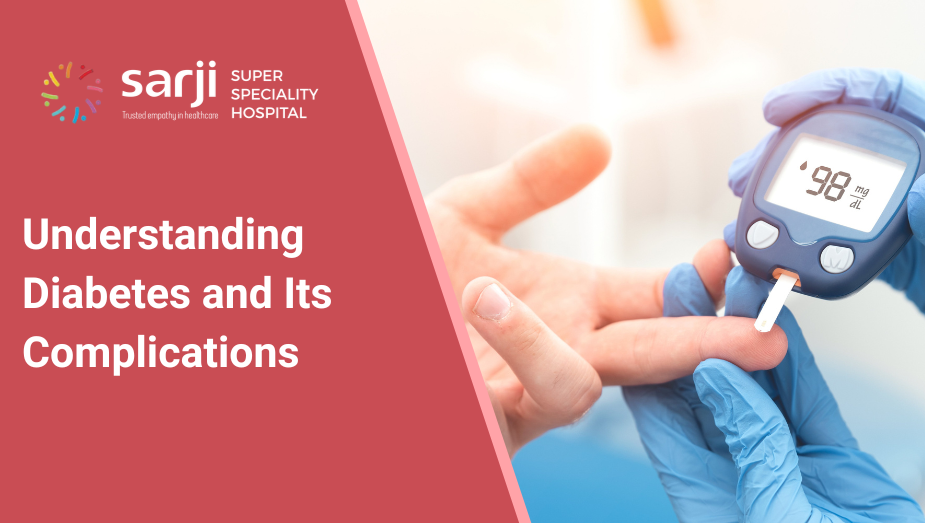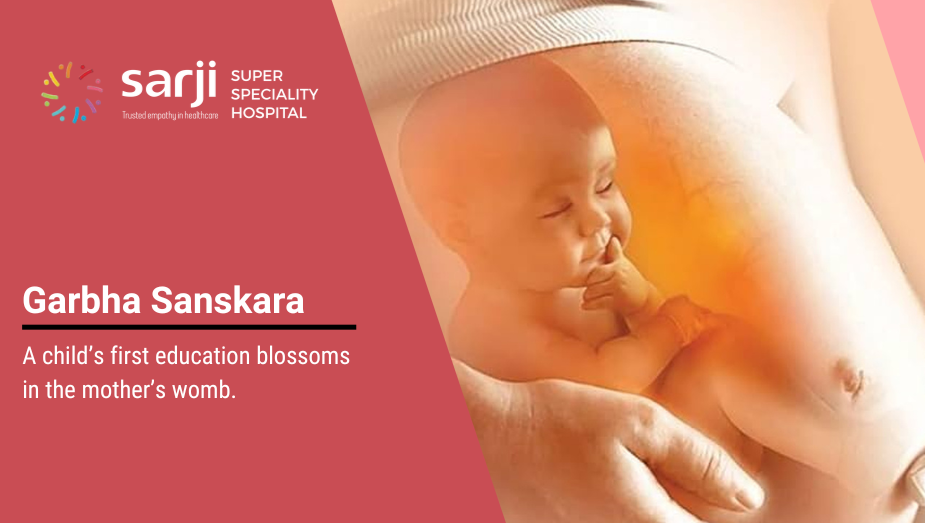What is Appendectomy (Appendix Removal Surgery)?
An appendectomy is a surgical procedure to remove an inflamed or infected appendix. An appendix is a small, finger-shaped pouch attached to the large intestine on the lower right side of the abdomen. Due to prolonged inflammation in the appendix (appendicitis), the risk of potential rupture or burst (peritonitis) can significantly increase causing life-threatening infections. Appendectomy is often performed as an emergency surgery to relieve severe abdominal pain.
When Should I Consult The Doctor For My Appendectomy Surgery?
While appendectomy can be done as emergency surgery, it can also be performed as an elective procedure. Certain underlying symptoms of appendicitis can indicate the need for a doctor’s consultation. Get in touch with the doctor for your appendix removal surgery in case of -
- Inflammation in the appendix (appendicitis)
- Fever higher than 101°F (38.3°C)
- Severe Abdominal Pain or Discomfort which does not improve with medications
- Pain during urination or bowel movements
- Persistent nausea or vomiting, especially if you’re unable to keep food or liquids down
- Constipation lasting more than three days or inability to pass gas.
Severe bloating or abdominal distension.
What Are The Different Types of Appendectomy Surgeries?
There are two main types of operation for appendix removal. Depending on the age, medical health, and financial preference of the patient, the surgeon may recommend the following types of appendectomies-
Open Appendectomy:
It is a conventional approach where the surgeon makes a single, large incision in the lower right side of your abdomen to remove the appendix. This method is often used in cases where the appendix has ruptured, or if there is a widespread infection or abscess that needs to be cleaned. Open appendix removal surgery often involves heavy bleeding, a longer recovery period, a high risk of complications, and visible scars.
Laparoscopic Appendectomy:
Laparoscopic appendectomy (appendix removal surgery) is a minimally invasive procedure where the surgeon makes pinhole incisions in the abdomen. A thin tube-shaped medical instrument with a camera on the other end (laparoscope) is inserted through one of these incisions to guide the surgeon inside the abdominal cavity. The appendix is subsequently removed from one of the other incisions. Laparoscopic appendectomy offers quicker recovery time due to minute incision, almost no blood loss, minimal scarring, and reduced postoperative pain.
How Can I Prepare For Appendectomy?
Most appendectomies are performed as emergency procedures where the appendix gets ruptured. In that case, the surgeon will perform immediate surgery to prevent fatality. However, if appendectomy is done as an elective procedure, the doctor or hospital will provide you with the following instructions to help you or your child prepare for the appendix removal operation -
Medical Evaluation:
The doctor will perform a physical examination and analyze diagnostic test reports to identify the severity of the condition. Diagnostic tests include imaging tests like an ultrasound or CT scan to confirm pain due to appendicitis. Furthermore, a blood test report may also be required to check for signs of infection or inflammation.
Medication History:
It is important to inform your doctor about any ongoing medications, supplements, or ayurvedic herbal medicines before the surgery. Some medications like blood thinners or heart medicines may need to be temporarily stopped before appendectomy.
Follow Dietary Restrictions:
Refrain from smoking, consuming alcohol, or a certain diet as directed by the doctor before the procedure.
Fasting:
You will be instructed to avoid eating or drinking for 9 to 12 hours before the surgery to reduce the risk of complications due to anesthesia.
What Happens During An Appendectomy?
Appendectomy is performed in two ways depending on the complexity of the condition, the patient’s preference, and their medical condition. Open surgery for appendix removal involves a large incision and is often not widely recommended unless in emergencies. Laparoscopic appendix removal surgery is an advanced procedure where the patient can generally go home on the same day of the surgery. Here are two types of operation for the appendix -
Open Appendectomy
- In an open appendectomy, the patient is administered with general anesthesia before the surgery.
- The surgeon opens the abdominal cavity to locate the appendix and drain any infection.
- The cavity is rinsed with a sterile saline solution.
- The surgeon removes the appendix from the body and repositions the abdominal tissues.
Finally, the incision is shut using surgical sutures.
Laparoscopic Appendectomy
- The anesthesiologist administers general anesthesia to the patient to ensure a smooth experience.
- The surgeon makes three small incisions, the size of a pinhole near your belly button.
- Carbon Dioxide gas is put into the abdomen for pneumoperitoneum, allowing the surgeon to reposition the abdominal tissues to locate the appendix.
- A laparoscope (a thin tube with a camera on the other end) is inserted through one of the incisions.
- The camera displays the internal organs on the video screen, allowing the surgeon to locate the appendix and guide the instruments through the incisions. If the instrument is guided externally by a remote or robot, it is called robotic laparoscopic appendix surgery.
Finally, the surgeon removes the appendix and the incisions are shut using surgical sutures.
What To Expect After Your Appendix Operation?
Monitoring Health:
The patient is taken to the recovery room, where the medical staff will monitor the vital signs as the effects of anesthesia wear off.
There may be some discomfort around the site of incision along with mild abdominal pain, nausea, or drowsiness, which are common and usually subside with medications.
Pain Management:
Doctors may recommend pain medications or over-the-counter medicines to manage discomfort and pain after the procedure.
Benefits of Laparoscopic Appendectomy Over Open Appendectomy?
Laparoscopic appendectomy has several benefits over conventional or open appendix removal operations -
Minimal Incisions: The procedure involves smaller cuts, resulting in significantly reduced pain and discomfort after the surgery.
Minimal Bleeding: Blood loss during surgery is minimal due to minimal invasion which reduces the chances of post-operative bleeding and complications significantly.
Negligible Pain: The patient is given general anesthesia before the surgery which ensures a painless experience during the procedure.
Shorter Hospital Stay: As the size of the incision is minute, there is almost no blood loss, which results in faster recovery and same-day discharge for most patients.
Almost No Complications: The chances of complications are almost negligible due to the minute size of the incision.
Faster Recovery: Patients recover quickly with most patients resuming daily activities within a week of the surgery.
No Major Lifestyle Modifications: Recovery after laparoscopic appendectomy is smooth, with minimal lifestyle changes.
Risks Associated With Appendix Removal Surgery:
There are certain risks associated with surgical removal of the appendix. Depending on the age and medical health of the patient, along with the type of appendix removal surgery, potential risks include the following:
Severe Infection: The incision site or the abdominal cavity may become infected as a result of a ruptured appendix.
Heavy Bleeding: Minimal bleeding is common, but excessive bleeding can occur in open appendectomy.
Abnormal Pain: Some people can experience lingering abdominal pain after surgery.
Anesthesia-Related Complications: Reactions to anesthesia, like nausea or allergic reactions, are possible if you have a history of allergic reactions to anesthesia and you have not revealed it to the doctor.
Abscess Formation: There’s a risk of abscesses forming in the abdomen if the appendix ruptures before surgery.
Organ Damage: Nearby organ damage such as intestines and bladder may be accidentally injured during the surgery.
Bowel Obstruction: Scar tissue from the surgery could block the intestines over time.
Hernia: In some cases, incision may lead to a hernia around the surgical site.
Recovery Tips After Appendectomy (Appendix Removal Surgery)?
Recovering from a laparoscopic or open appendectomy requires care and patience. Here are some tips for a smooth recovery:
Adequate Rest and Avoid Strain
Adequate rest with minimal mobility and light movement can aid recovery.
Avoid lifting heavy objects for at least 4-6 weeks after an open appendectomy and 1-2 weeks for laparoscopic surgery.
Follow Post-Operative Care
Stick to the post-operative care provided by the doctor regarding wound care and medication at home.
Pain Management
Take prescribed medications by the doctor to help you relieve pain or discomfort.
Patients can also use a heating pad to reduce soreness and avoid stiffness in the abdominal area.
Dietary Changes
Stay hydrated and encourage semi-solid or light meals and gradually transition to a normal diet
Avoid greasy, spicy, or heavy foods that may cause bloating or discomfort.
Encourage fiber-rich foods to prevent constipation.
Refrain from Smoking and Alcohol Consumption
Excessive smoking and consuming alcohol can delay healing and increase the risk of complications.
Gradually Resume Activities
Begin with gentle activities like walking to prevent blood clots and improve circulation.
Avoid intense exercise until your doctor’s advice.
For Laparoscopic Appendectomy
Monitor Incision Sites
Keep the small incisions clean and dry to prevent infection.
Notify your doctor if you notice redness, swelling, or discharge.
Address Shoulder Pain
Gas used during the procedure may cause shoulder pain. Walking and mild stretching can help release the trapped gas.
For Open Appendectomy
Wound Care
Regularly change the dressing and keep the surgical site clean.
Avoid scratching or applying unapproved creams.
Manage Recovery
Recovery might take 4-6 weeks for open surgery. Avoid rushing into strenuous activities.







